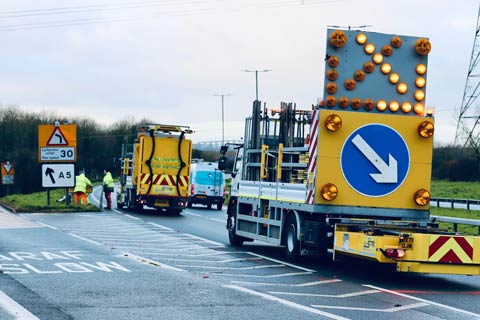15th February 2022 | Hudson Contract
The latest tactic of HMRC, in their long running battle to discourage the use of CIS subbies on site, has been to target specific trades with extended status compliance checks.
Two Hudson clients in the south east were amongst a number of scaffolding firms picked out at random by HMRC. The inspector assigned to the case was open about the fact that HMRC believe scaffolding is ‘high risk’ when it comes to a lack of compliance but other trades would follow.
During the inspections HMRC looked beyond agency and intermediary arrangements and scrutinised the actual working relationship between the client and the subbies, even interviewing a number of them to find out how they work.
Given that Hudson was involved, it was no surprise that both firms were eventually given the all clear, but it highlights the risks with status and emphasises why Hudson have such strict policies and processes in place, why we audit sites and most importantly why we don’t cut corners and use a one size fits all CIS solution.
Ian Anfield, managing director of Hudson Contract, said:
With these new style status inspections and the Due Diligence of Labour Provider checks that we have witnessed it’s not enough for companies to just say that somebody else pays their subbies.
"HMRC is broadening its questioning in line with IR35 off-payroll working rules to make sure the reality on sites is consistent with contracts, regardless of third party setups. In these two cases involving scaffolding companies, it was a welcome reminder for our clients that Hudson Contract is much more than just a payroll provider. Having our name on the CIS return is often enough for HMRC to look elsewhere but unlike our competitors, we have everything in place should they wish to dig deeper.”
HMRC opened 146,000 compliance checks in the first half of the financial year, according to the latest available official statistics. More recent anecdotal evidence suggests that compliance checks are back in full swing after the pandemic.
Mr Anfield said: “Lots of revenue officers are working from home, which makes compliance more dangerous. Rather than seeing companies face to face and reviewing their documents and going away satisfied, some have become keyboard warriors and are emailing questions to companies and responding to replies with follow-up questions by return. What used to take hours is now taking months with email ping-pong producing endless amounts of data, much of which HMRC already has access to.”
Hudson Contract is also seeing more evidence of so-called commercial contractors failing to apply VAT under the domestic reverse charge rules. Mr Anfield said: “This is because they will do anything to win business, regardless of the best interests of their customers who sooner or later will likely face huge backdated VAT bills. We have seen a number of cases where commercial contractor payroll companies have gone into administration and one in particular where HMRC is pursuing the former directors for millions of pounds in unpaid taxes. The taxman could easily widen the net to recover the money from former customers. It’s not a worth risk taking.”



